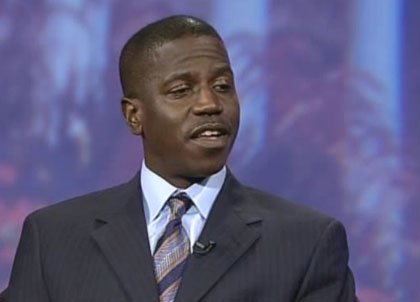Dr. Rodney Taylor starts each day seeking peace of mind.
It’s usually before 7 a.m. when Taylor, who works in the operating room at the University of Maryland Medical Center, heads to a local gym and works up a sweat.
“It’s my time to have a clear mind and think and have a full and complete conversation with myself that’s not interrupted by a cell phone or a pager,” said Taylor, who has worked at the school of medicine since completing his undergraduate and medical degrees at Harvard College and the Harvard Medical School in 2001.
“I can organize my day and become aware of things that I may have breezed over. Once I hit the doors to the hospital, it’s nonstop and because I’ve gotten in my morning workout and have had some time to prepare, I’m ready emotionally and psychologically.
Taylor, who is originally from Philadelphia, says he loves being a resident of the City of Baltimore and thoroughly enjoys his patients and colleagues, whom he says are like family.
An advocate for healthy living, he has run marathons in Boston, New York and London. Taylor plans to run in the Tokyo Marathon in Japan later this year.
“I have been an athlete all my life, playing football, basketball, track all throughout high school and football in college,” Taylor said.
He says that when he began his surgical training and his available time became short, he looked for an activity to stay fit and fulfill the competitive juices that he could do alone and at any time.
“So, I picked up running and then I was interested in pushing my limits and taking it to another level. So the year I finished my training and moved to Baltimore, I decided to run the inaugural Baltimore Marathon. Subsequently, I decided to run the best marathons around the world and it has become a hobby that satisfies my desires for fitness, my love of travel and engages my competitive needs,” he said.
While he picks marathons based on the various challenges each present, Taylor says he chose to work at the University of Maryland Medican Center because he wanted to come back to this part of the country after being in Michigan.
“It seemed like a natural fit here and I enjoyed the leadership of Don Wilson who was a fantastic dean and I loved the fact that he looked like a family member as did the community and the patients that we cater to,” Taylor said.
With a wide range of clinical interests and expertise, including head and neck cancer, endoscopic sinus surgery and anterior skull base surgery, Taylor has served both as treasurer and president of the Maryland Otolaryngology Society.
In 2008, Black Enterprise magazine named Taylor to its list of “America’s Leading Doctors,” a list that includes 140 top rated African-American physicians and surgeons throughout the country who are advancing in medicine.
Those selected are judged to be leaders in their respective fields, to be superior in service and reputation and have been confirmed as being certified in accordance with the American Board of Medical Specialties.
When Taylor earned selection to the list, a special emphasis had been placed on those who have been involved in medical breakthroughs across specialties.
“I was surprised of that honor. Pleasantly surprised,” Taylor said. “I’ve been a fan of (Black Enterprise founder) Mr. Earl Graves for a long time and I’ve been very well aware of his contributions to the African American community.”
Since arriving at the University of Maryland as a head and neck surgical specialist, Taylor has continued his outreach work, performing operations and offering assistance in places such as Kenya, Cambodia and Haiti.
“Here we tend to take for granted our health care and the expertise we have. There, and other places in the world, you truly see disease in very advanced stages,” Taylor said. “I’m privileged to help folks out and a few times a year I travel and I make time. For me and my upbringing, my roots, my role models were such that I understood that we are here for a purpose and part of that is to help others.”
As far as marathons go, Taylor says that he is committed to running in many more.
“The most difficult challenge is really finding the time to train for a marathon to run it to my standard. Essentially, that’s four months with two to three hours set aside on the weekend for long runs and two or three shorter runs during the week before work at 5:30 a.m.,” he said. “With travel and work, that can sometimes be a real challenge but one that I really enjoy. With good preparation, the actual race day is fun and the marathon is no cake walk but still enjoyable.”
